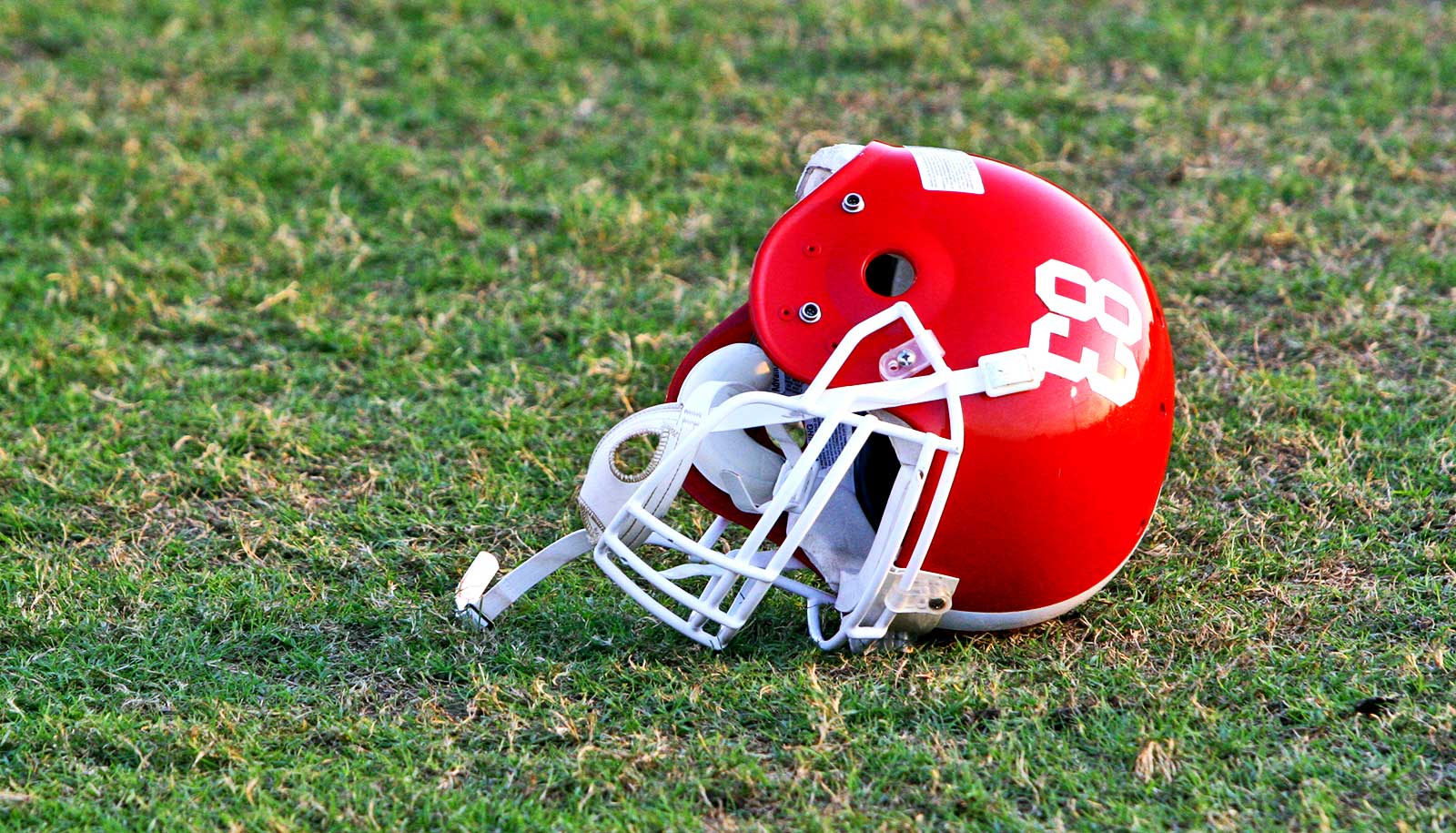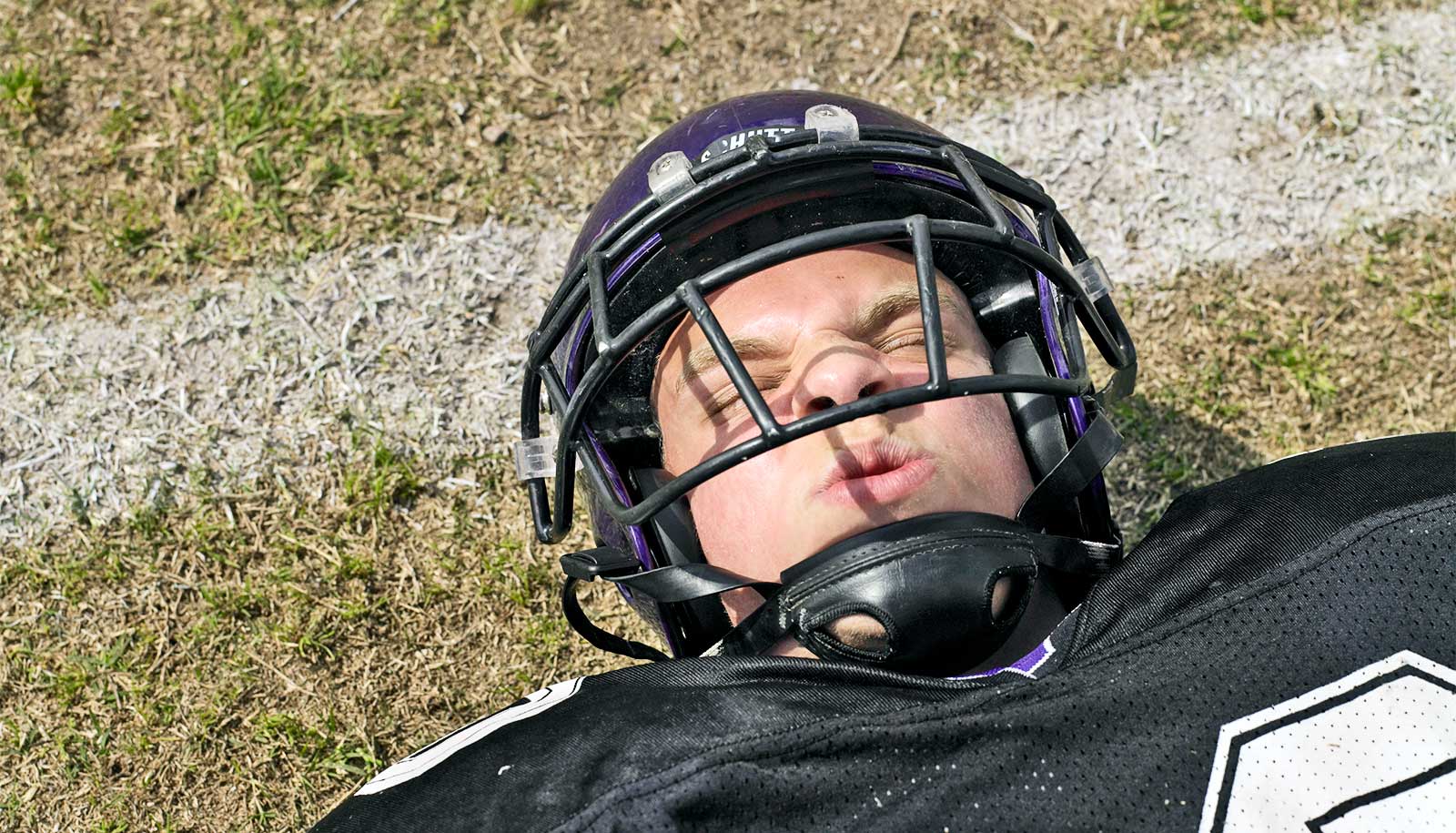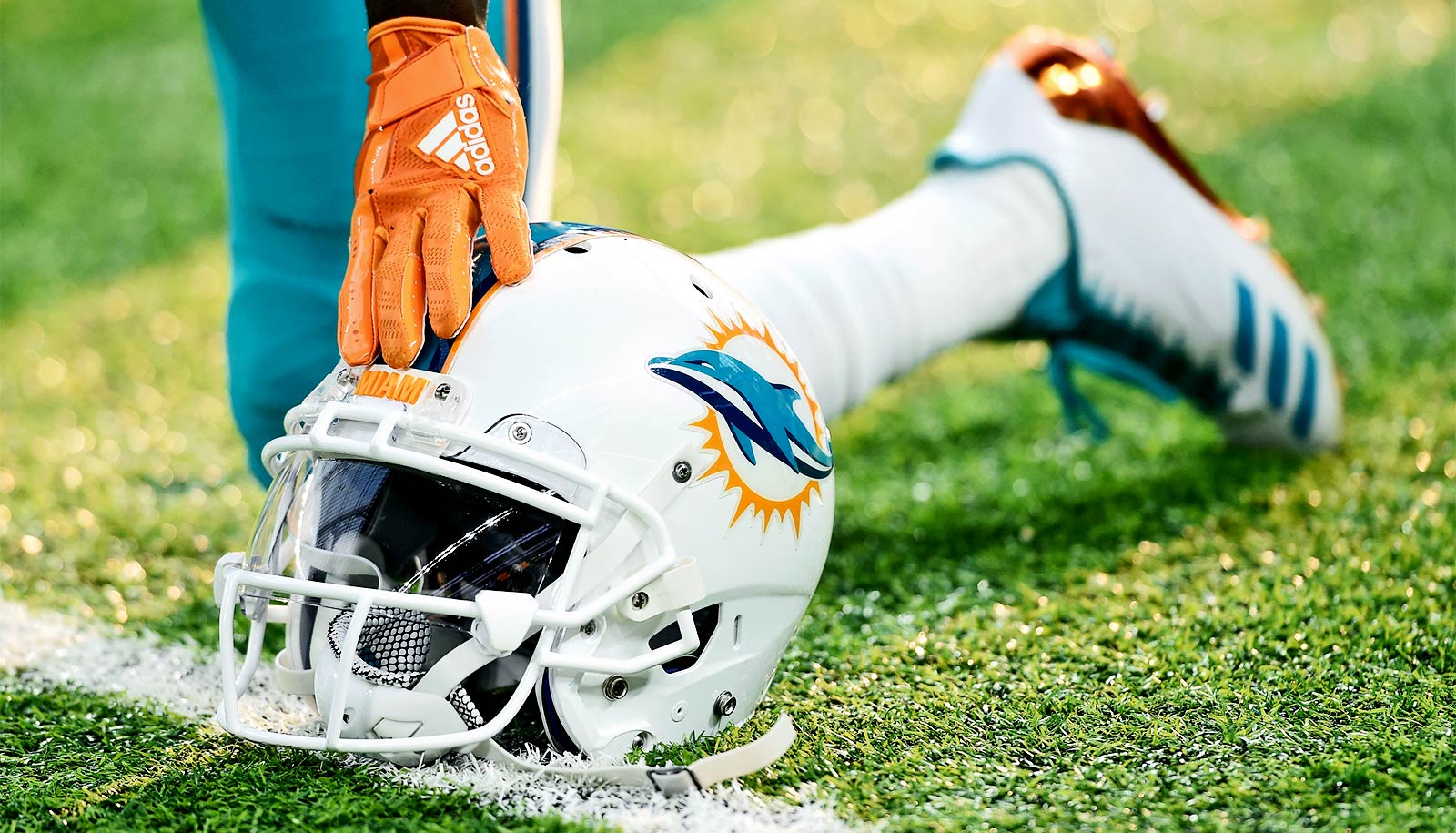A new study finds a strong link between playing football and increased odds for reporting a Parkinson’s diagnosis or having disease-related symptoms.
The researchers say the study is the largest to date describing “the association between participation in football and the odds for having a reported diagnosis of Parkinson’s.”
Researchers at the Chronic Traumatic Encephalopathy (CTE) Center at Boston University used a large online data set of people who have or are more likely to be concerned, or at risk, for Parkinson’s disease (PD). They found that the odds of participants with a history of playing organized tackle football increased by 61% for having “a reported parkinsonism or PD diagnosis.”
The findings, published in JAMA Network Open, are an extension of the ongoing work the CTE Center has been doing examining the impact repetitive and frequent head trauma, especially from sports, can have on the brain.
For the study, the researchers evaluated 1,875 participants, including 729 men who played football, predominantly at the high school or college level. For comparison, the study evaluated 1,146 men who played non-football sports. The survey was conducted through Fox Insight, a long-term online study of people living with and without Parkinson’s, sponsored by the Michael J. Fox Foundation for Parkinson’s Research.
“Boxers have had a history of Parkinson’s, going back to the 1920s,” says the study’s corresponding author Michael L. Alosco, an associate professor of neurology at the BU Chobanian & Avedisian School of Medicine. “Fast forward to modern day, and there have been some interesting pathology studies that have linked repetitive head impact to things like Parkinson’s. Our goal was that we know this has been looked at in boxing, and in tissue studies of brains, but what about in living people?”
Parkinson’s disease, after Alzheimer’s, is the second most common neurodegenerative disorder in the United States, with most people diagnosed at age 60 or older (an estimated 5% to 10% of people with Parkinson’s are diagnosed before turning 50). Approximately 500,000 Americans are known to have the disease, although some experts believe many cases go undiagnosed and that as many as a million Americans may suffer from it.
In addition to finding a link between playing football and increased risk for developing Parkinson’s, the researchers also found that players who had longer careers and played at more competitive levels experienced greater odds for having a reported diagnosis of parkinsonism or Parkinson’s.
“I would say that I was surprised by the strength of the effect—it was a pretty robust finding,” Alosco says. “We had this group of people at risk for Parkinson’s. If you throw in football, it further increases their risk.”
Rachel Dolhun, a movement disorder specialist and the Fox Foundation senior vice president for medical communications, says studies “like this contribute to a growing body of evidence illuminating risks associated with Parkinson’s. This type of information allows us to learn more about how and why Parkinson’s comes on, how best to treat it, and how to, one day, hopefully prevent it.”
Dolhun emphasizes that while the results don’t mean that if you play or played football you’re destined to develop Parkinson’s, they do highlight a link. “Knowing about this connection can give people, including younger adults, the power to make decisions and take steps to care for their brains as best as possible all throughout life.”
Playing tackle football could be a contributing Parkinson’s risk factor, especially among those who might have a higher chance of having the disease because of their family history, Alosco says.
“However, the reasons for this relationship are not clear and we also know that not everyone who plays tackle football will develop later-life neurological conditions, meaning many other risk factors are at play.”
The researchers acknowledge that their findings are preliminary and that Parkinson’s diagnoses were self-reported, but say a particular strength of their study is that it compares the football players to those who played different sports. It also features men who played tackle football only at the amateur level; most research so far on brain health and brain diseases has concentrated on professional athletes.
“Previous research has focused on the association between American football and risk for CTE,” says lead author Hannah Bruce, a research specialist at the Chobanian & Avedisian School of Medicine. “However, similar to what has historically been seen in boxers, American football might also affect risk for other neurodegenerative conditions such as Parkinson’s disease.”
The Michael J. Fox Foundation for Parkinson’s Research funded the work. Grant funding also came from the National Institute of Neurological Disorders and Stroke.
Source: Doug Most for Boston University



